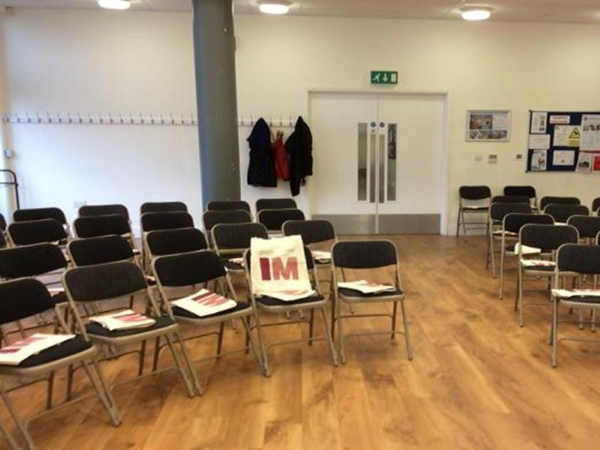Gareth D Morewood looks back on the Educational Rights Alliance conference, and shares a list of posts on the meaning of inclusion.

Just before the half-term break I was fortunate enough to attend the Educational Rights Alliance ‘un-conference’ on inclusion, supported by Irwin Mitchell, and was lucky to meet Polly Sweeney the co-author of the excellent set of resources compiled of factsheets and template letters.
The event was a gathering of parents/carers, SENCos, academics, lawyers, headteachers and deputies and one young man, Nye, who started the proceedings with his views on what school is like for a child with autism.
This was quite a unique event; motivated by a shared desire for change. And, I have to say, it was a privilege to attend.
I was there nice and early and took the opportunity for some ‘therapeutic chair arranging’ (see picture!) It was nice to chat with people as they arrived and take the time to stop and think – having time to pause is a luxury that the SENCo job rarely affords.
Right from the start, the shared passion for the rights of the child, educational equality and entitlement, and a broader sense of starting something ‘big’ was evident. Indeed, the self-selecting group (the event was free but did require a ticket) was all motivated by these shared aims.
Coming from different backgrounds afforded a unique perspective on the challenges facing young people with SEND, their parents/carers and others. As a fore-runner to the day itself, several blogs and posts on inclusion were written – these included a series for four SENCology posts.
The full list can be found below alongside the author's username so you can follow them on twitter:
The blogs, debates, discussions and presentations have generated much thought for me, which will undoubtedly be the subject of future SENCology posts. However, here I want to consider the main aim of the event which was to develop an initial draft manifesto.
"In education inclusion is fundamentally about a child's entitlements and his/her rights to the educational opportunities accessed by his/her peers. Education includes social, emotional and personal development"
This quote contains the core principles of the draft manifesto, and are all key elements of what makes me an effective SENCo, and continue to be something the staff, parents/carers and young people I work with have in common. Do take time to read it through and consider signing up.
A few years ago I wrote a piece entitled Is the ‘Inclusive SENCo’ Still a Possibility? I truly believe it still is. However, an austere regime has hit a lot of front-line service provision for young people with SEND, and squeezed schools’ ability to work effectively as part of a child-centred approach.
This combined with a plethora of educational change has caused some children and families great distress. Agreeing a shared aim for what inclusive education means in 2015 is an essential starting point, as the numerous signatories of the manifesto testify.
So, as you read this and other pieces about SEND provision and the 21st Century SENCo; consider signing up to the manifesto’s aims. Simply tweet @ERA_tweet or e-mail educationalrightsalliance@live.com with your name and how you’d like to be described.
This is the start of the debate, and agreeing our shared aims allows for greater focus. Look out for future SENCology posts, including details about a proposed event in northern England in the summer term!
Do continue to support the debate with emerging issues and help safeguard a more inclusive set of values for the next generation.
Other links: